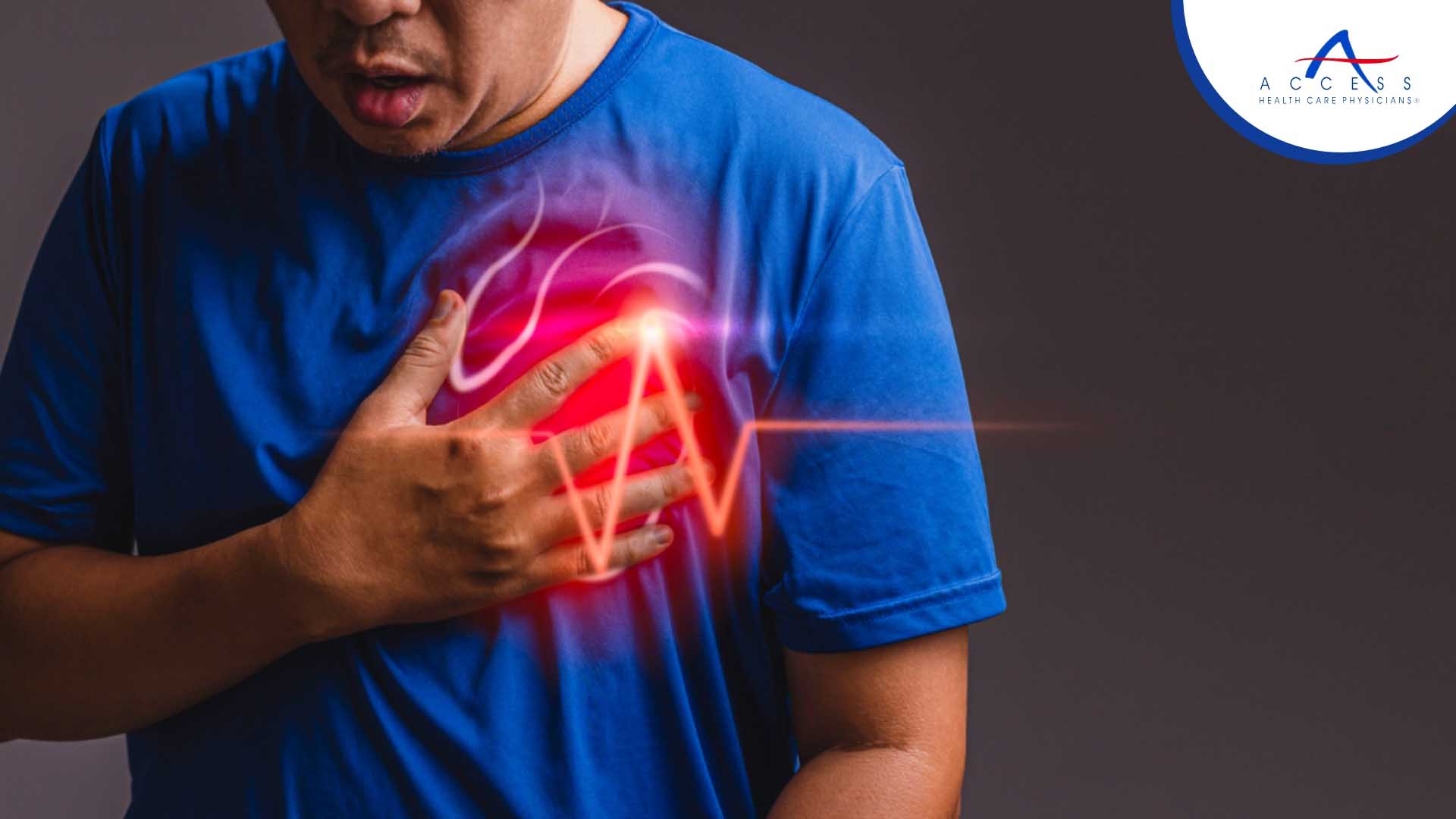Heart palpitations can be a terrifying and upsetting experience for many people. When you feel your heart racing, skipping beats, or fluttering in your chest, you may wonder whether something is significantly wrong with your cardiovascular health.
Heart palpitations can feel like pounding and most people get them because of anxiety. However, there can be other underlying reasons for it.
Understanding the underlying causes of heart palpitations can provide you with the knowledge you require to tackle the problem confidently and seek proper medical assistance when necessary.
Understanding Heart Palpitations
Heart palpitations are symptoms of being aware of your heartbeat, which is frequently described as irregular, fast, or pounding sensations in the chest. It feels like your heart is speeding or missing beats. Palpitations can be felt in your chest, throat, or neck.
Palpitations can occur at any time, even when you are sleeping or performing routine activities. Although they can be shocking, palpitations are usually neither serious nor dangerous. They can, however, when associated with an irregular heart rhythm, necessitate medical treatment.
Are They Common?
Heart palpitations are quite common. According to one study, 16% of participants saw their primary care physician as they were experiencing palpitations. In addition, one of the most common reasons people contact a cardiologist is for heart palpitations.
They are more common in women and people who were assigned female at birth. Heart palpitations can occur at any moment in a person's life. Be it when you are a teenager, experiencing pregnancy, or going through menopause (for women).
Causes of Heart Palpitations
1. Lifestyle
Emotional or psychological stress tends to trigger palpitations. Those who excessively consume coffee, tea, and energy drinks can also frequently experience them. In addition, both alcohol and tobacco use can lead to palpitations.
2. Physical factors
Temporary palpitations can be caused by strenuous exercise and activities. In these circumstances, insufficient fluid intake might disturb electrolyte balance, resulting in palpitations.
Palpitations can also be caused by hormonal imbalances during menstruation, pregnancy, or menopause.
3. Medical conditions
Heart palpitations can be caused by a variety of cardiac rhythm abnormalities, including atrial fibrillation. Another factor is hyperthyroidism, which is characterized by an overactive thyroid gland.
Anemia, or a low red blood cell count, causes palpitations owing to insufficient oxygen supply. It can also be a side effect of certain prescription pharmaceuticals, over-the-counter treatments, and herbal supplements.
Symptoms
While some people may only be aware of their heartbeats on occasion, others may notice more pronounced symptoms. It is critical to recognize any accompanied symptoms that may signal an underlying problem that requires medical care.
Besides the classic feeling that the heart is skipping a beat, palpitations can also be described as the heart beating heavily or abnormally.
While everyone's experience with palpitations is unique, you might feel:
- A sensation of your heart skipping a beat.
- You feel a flutter in your chest.
- A thumping feeling, as if your heart is working overtime.
- A heartbeat that is unusually quick or racing.
- A "flip-flopping" feeling, as if your heart is "turning over" in your chest.
When do people usually experience these palpitations?
- Heart palpitations can be part of your body’s reaction to feelings of anxiety or panic. This could be a ‘flight or fight’ response.
- Spicy or rich foods can cause palpitations, and so can caffeinated drinks or alcohol.
- People tend to get heart palpitations at night as well
- Sleeping on your side may raise the pressure in your body, causing palpitations.
Diagnosing Heart Palpitations
No matter your symptoms, when you are experiencing heart palpitations you must consult your healthcare physician.
A routine evaluation usually includes:
- Your symptoms, medical history, lifestyle habits, and any underlying medical conditions will be addressed by the doctor.
- Your healthcare physician will examine you physically, evaluating your heart rate, and rhythm, and listening for any abnormal heart noises. Your physician may recommend you wear a heart monitor for a specific amount of time.
- You can also be asked to run some diagnostic tests such as an echocardiogram (ECG) or an EKG.
While low-frequency palpitations may be common, knowing when to seek medical attention for palpitations is important. If palpitations persist or become more frequent, they may be a sign of a more serious cardiac problem, such as arrhythmia, and require medical care. In lieu of any symptoms, you can easily book an appointment with a primary care provider associated with Access Health Care Physicians.
Frequently Asked Questions
If you have heart palpitations that last more than a few seconds or are accompanied by dizziness, loss of consciousness, chest or upper body pain, nausea, excessive or unusual sweating, or shortness of breath, you should see your doctor.
Heart palpitations are a once-in-a-blue-moon phenomenon for most people. Others have dozens of these heart flutters per day. The majority of palpitations are caused by a minor glitch in the heart's rhythm.
Exercise can help restore the heart's natural rhythm and enhance overall cardiovascular health. It might help in the reduction of tension and anxiety as well. Medication is sometimes needed. If you experience frequent heart palpitations, please consult your primary care physician or a cardiologist.


